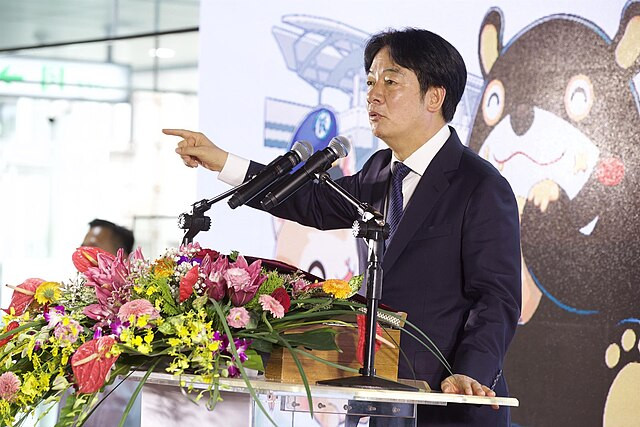Taiwan moved to dramatically expand its military readiness on Wednesday, announcing a $40 billion supplemental defense package as President Lai Ching-te warned that "there is no room for compromise on national security" amid mounting pressure from China and increased expectations from the United States. The eight-year spending plan would boost Taiwan's capabilities in missiles, drones and air-defense systems at a moment when Beijing's military activity near the island continues to intensify.
Unveiling the T$1.25 trillion package, Lai said history showed that any attempt to bargain with a hostile power invited "enslavement," underscoring his message that Taiwan must signal clear resolve. "National sovereignty and the core values of freedom and democracy are the very foundation of our nation," he told reporters at the Presidential Office, describing the new allocation as central to preserving stability in the Taiwan Strait.
Defense Minister Wellington Koo said the budget, which spans 2026 to 2033, will include procurement of precision-strike missiles, unmanned systems and the new "T-Dome" air-defense shield designed for long-range detection and interception. Koo added that the island will pursue joint development projects with the United States under the expanded package.
Lai framed the announcement as part of Taiwan's embrace of an asymmetric-defense strategy, which aims to counter China's much larger military by creating a force that is more agile, survivable and capable of inflicting targeted damage. For 2026, Taipei intends to allocate T$949.5 billion-about $30.3 billion-equivalent to 3.32% of GDP. Lai has pledged to lift spending to 5% by 2030.
Washington publicly welcomed the move. A State Department spokesperson said Lai's commitment "demonstrates resolve to strengthen Taiwan's self-defense capabilities," while Raymond Greene, the de facto U.S. ambassador in Taipei, wrote that the United States supports Taiwan's "rapid acquisition of critical asymmetric capabilities." Greene added that the package is "a major step towards maintaining peace and stability across the Taiwan Strait by strengthening deterrence."
Beijing reacted sharply. China's Taiwan Affairs Office accused Taipei of permitting "external forces" to influence its decisions, with spokesperson Peng Qingen saying, "They squander funds that could be used to improve people's livelihoods and develop the economy on purchasing weapons and currying favour with external powers. This will only plunge Taiwan into disaster."
The package must still pass Taiwan's opposition-controlled legislature. Kuomintang chairwoman Cheng Li-wun urged Lai to "step back from the brink," telling party members, "I also hope the international community can understand that the people of Taiwan love peace and firmly desire peace. We want to stay far away from the flames of war, we want to avoid war."
Lai argued the spending is necessary as China escalates military flights, naval patrols and disinformation campaigns around the island and across the wider region. "China's threats to Taiwan and the Indo-Pacific region are escalating," he said. "Recently, various types of military intrusions, maritime gray zones and disinformation campaigns have been occurring in Japan, the Philippines and around the Taiwan Strait, causing deep unease and distress to all parties in the region."
The president previewed the budget in an op-ed for The Washington Post, writing that "The international community is safer today because of the Trump administration's pursuit of peace through strength." Lai reiterated on Wednesday that ties between Taipei and Washington remain "rock-solid," citing recent remarks from President Donald Trump affirming that "Taiwan is Taiwan" and asserting that he "personally respects Taiwan."
Lai also addressed the recent war of words between China and Japan, triggered after Japanese Prime Minister Sanae Takaichi said a Chinese attack on Taiwan could prompt Japanese involvement. "Constantly launching multifaceted threats and attacks against neighbouring countries at every turn is not the conduct expected of a responsible major power," Lai said.





